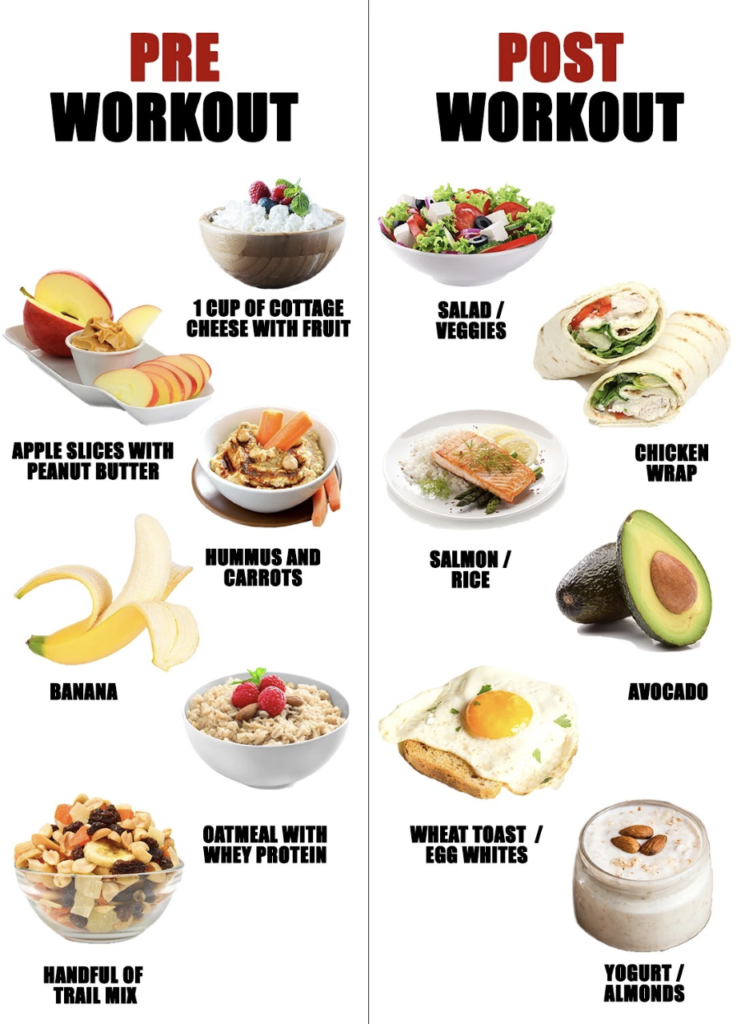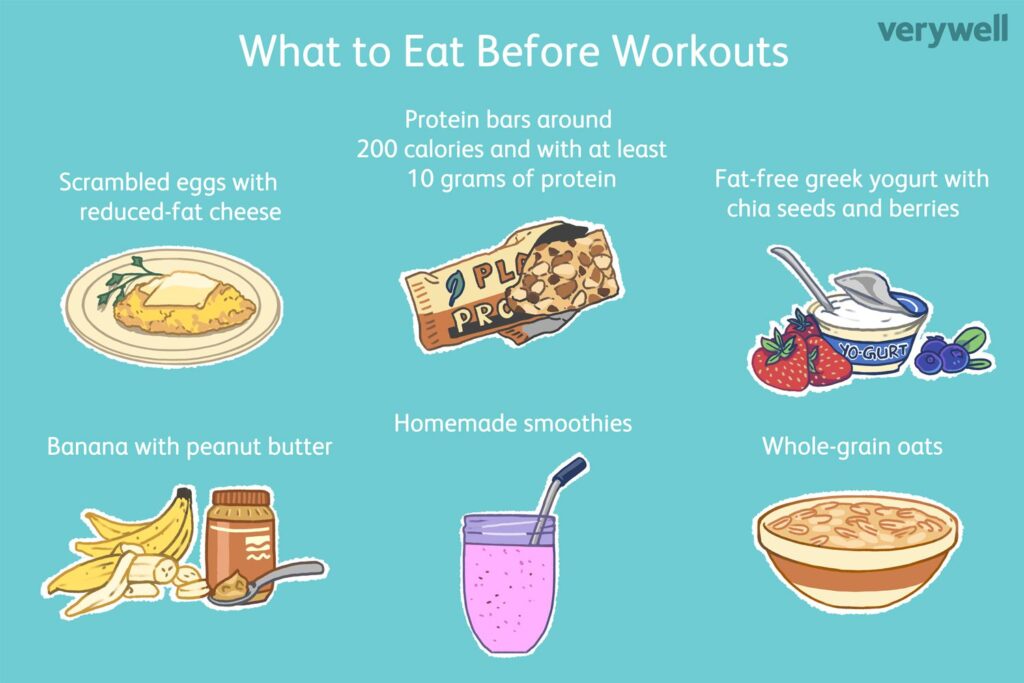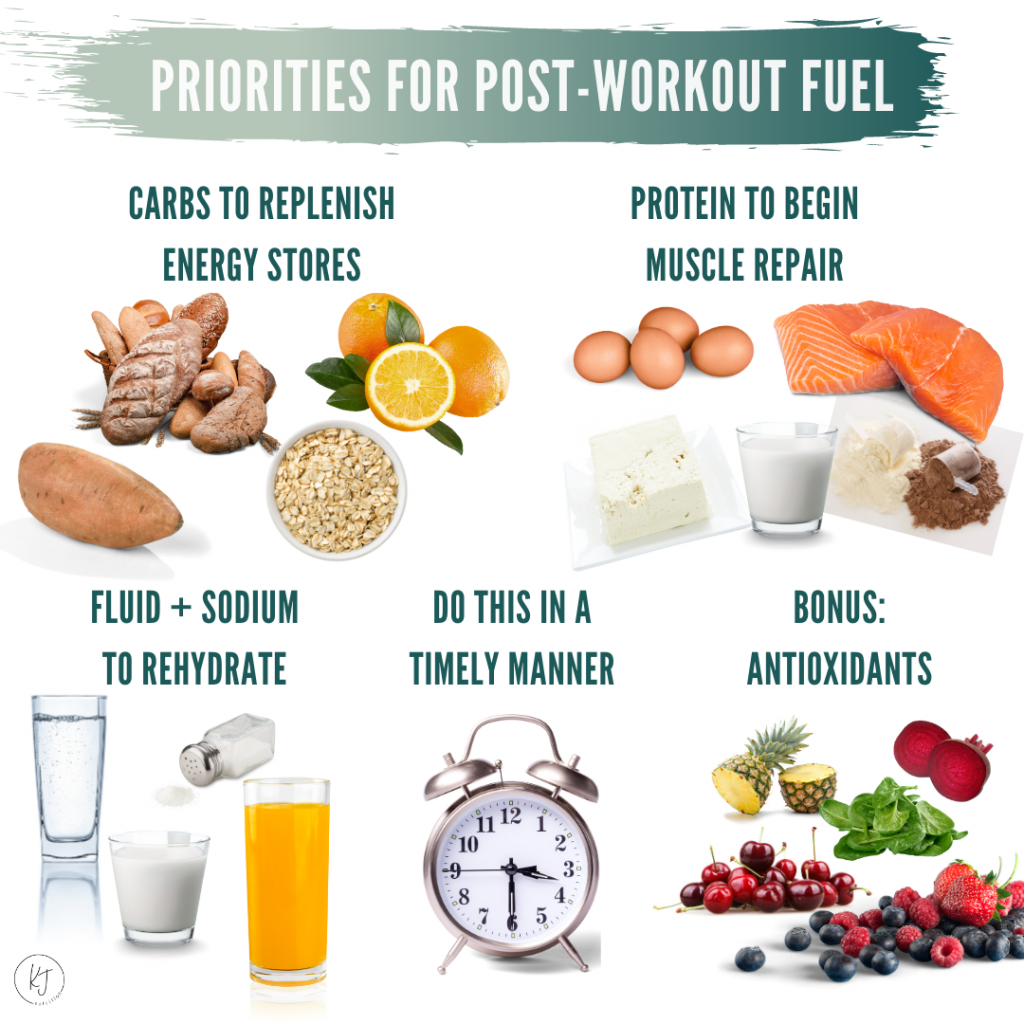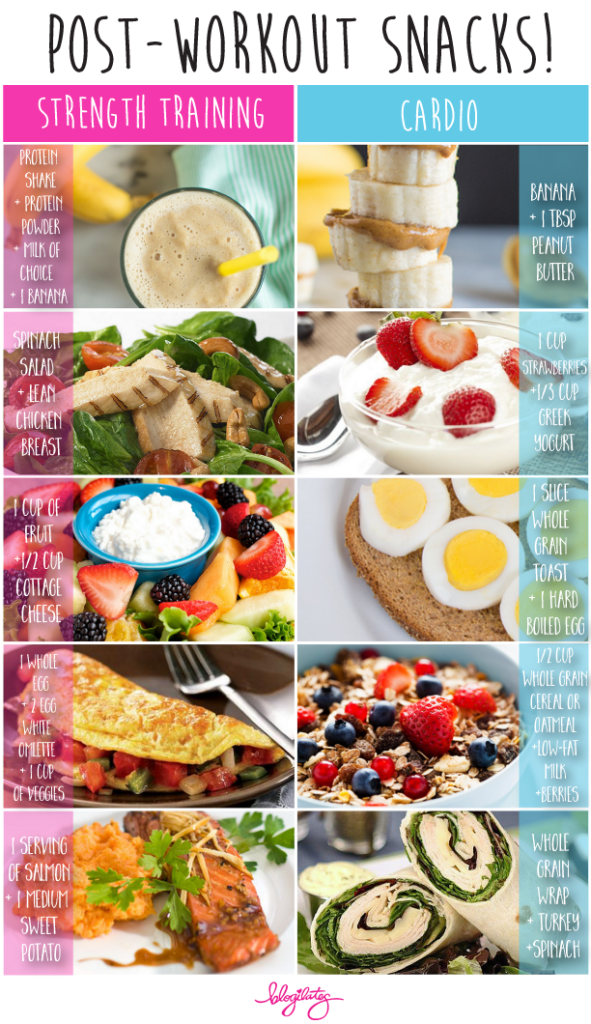
Fueling Your Workouts: Pre- and Post-Exercise Meal Ideas for Weight Loss
Are you looking for meal ideas to maximize your workouts and support your weight loss goals? Look no further! In “Fueling Your Workouts: Pre- and Post-Exercise Meal Ideas for Weight Loss,” you’ll find some fantastic options to energize your body and aid in muscle recovery. Whether you’re hitting the gym, going for a run, or engaging in any other physical activity, these meal ideas will provide you with the necessary nutrients to fuel your workouts effectively.
If weight loss is your goal, it’s essential to maintain a balanced diet while giving your body the fuel it needs. Explore this content to discover a range of pre-workout and post-workout meals that are both nutritious and delicious. With these meal ideas, you’ll not only enhance your performance during exercise but also support your weight loss journey. So, get ready to fuel your workouts and achieve your fitness goals!
Table of Contents
TogglePre-Exercise Meal Ideas
Purpose of a pre-exercise meal
Before engaging in any physical activity, it is important to fuel your body with the right nutrients to optimize performance and enhance weight loss efforts. A pre-exercise meal serves as a source of energy, replenishes glycogen stores, and helps prevent muscle breakdown during workouts. By consuming a balanced pre-exercise meal, you can ensure that your body has the necessary energy to power through your workout and burn calories effectively.
Nutrient composition of a pre-exercise meal
A well-rounded pre-exercise meal should consist of a combination of macronutrients, including carbohydrates, protein, and a small amount of healthy fats. Carbohydrates provide the primary source of energy for the body, so it is crucial to include this nutrient in your pre-workout meal. Protein aids in muscle repair and growth while healthy fats provide sustained energy and promote satiety.
Timing of pre-exercise meal
To maximize the benefits of your pre-exercise meal, it is important to consume it approximately 1-3 hours before your workout. This allows enough time for digestion and absorption of nutrients, ensuring that you have enough energy during your training session. Avoid consuming a large meal immediately before exercising to prevent discomfort and digestive issues.
Examples of pre-exercise meal ideas
- Whole grain toast topped with avocado and sliced turkey
- Greek yogurt with berries and a sprinkle of granola
- Oatmeal with almond butter and banana slices
- Quinoa salad with grilled chicken and mixed vegetables
Post-Exercise Meal Ideas
Importance of post-exercise meal
After completing a workout, your body requires proper nutrition to promote muscle recovery, replenish glycogen stores, and support optimal weight loss. Consuming a post-exercise meal within the critical 30-minute to 1-hour window helps kick-start the recovery process and aids in muscle growth. Additionally, a well-designed post-workout meal can prevent muscle breakdown, enhance fat loss, and boost metabolism.
Nutrient composition of a post-exercise meal
A post-exercise meal should focus on replenishing glycogen stores and providing the necessary building blocks for muscle repair and growth. It should consist of a combination of carbohydrates and protein, with a moderate amount of healthy fats. This nutrient composition aids in restoring energy levels, promoting muscle recovery, and maintaining satiety.
Timing of post-exercise meal
The timing of your post-exercise meal is crucial for optimal recovery and weight loss. Aim to consume a meal or snack within 30 minutes to 1 hour after completing your workout. During this time, your body is more receptive to nutrient uptake, allowing for efficient muscle repair and glycogen replenishment.
Examples of post-exercise meal ideas
- Grilled salmon with quinoa and steamed vegetables
- Whole wheat wrap with lean turkey, hummus, and mixed greens
- Smoothie made with protein powder, almond milk, spinach, and a banana
- Stir-fried tofu with brown rice and broccoli
Balancing Macronutrients
Understanding macronutrients
Macronutrients are the three main components of our diet: carbohydrates, protein, and fat. Each macronutrient plays a unique role in the body and contributes to overall health and weight management. Understanding the importance of balanced macronutrients is essential for optimizing your pre- and post-exercise meals.
Importance of balanced macronutrients
Balancing macronutrients is crucial to ensure that your body gets the necessary fuel and nutrients it needs for sustained energy and optimal weight loss. Carbohydrates provide quick energy, while protein helps repair and build muscle tissue. Healthy fats contribute to satiety and support brain function. A well-balanced diet that incorporates macronutrients in the right proportions can enhance performance, promote weight loss, and support overall well-being.
Effect on weight loss
Balancing macronutrients can have a significant impact on weight loss efforts. Consuming a balanced meal before exercising helps maintain stable blood sugar levels, preventing excessive hunger and overeating post-workout. Including protein in your post-exercise meal aids in muscle recovery, which helps increase metabolism and burn more calories throughout the day. Focusing on balanced macronutrients ensures that your body is efficiently using energy and promoting optimal weight loss.
Tips for balancing macronutrients in pre- and post-exercise meals
- Include a portion of lean protein, such as chicken, fish, tofu, or Greek yogurt, in both your pre- and post-workout meals.
- Choose complex carbohydrates, like whole grains, fruits, and vegetables, to provide sustained energy.
- Incorporate small amounts of healthy fats, such as avocado, nuts, and seeds, to promote satiety and overall health.
- Track your macronutrient intake using a food journal or mobile app to ensure you are meeting your individual needs.
Protein-Packed Options
Benefits of protein in pre- and post-workout meals
Protein plays a crucial role in fueling workouts, supporting muscle recovery, and promoting weight loss. Including protein in your pre-exercise meal helps prevent muscle breakdown and provides a sustained release of amino acids during your workout. Consuming protein after exercise aids in muscle repair, growth, and metabolism, ensuring that you get the most out of your workout and continue to burn calories even at rest.
Protein-rich pre-exercise meal ideas
- Egg white omelet with spinach, tomatoes, and feta cheese
- Protein smoothie made with whey protein, almond milk, and mixed berries
- Greek yogurt topped with sliced almonds and a drizzle of honey
- Grilled chicken breast with steamed broccoli and quinoa
Protein-rich post-exercise meal ideas
- Baked salmon with roasted sweet potatoes and asparagus
- Quinoa and black bean salad with grilled chicken
- Cottage cheese with fresh fruit and a sprinkle of chia seeds
- Sprouted grain bread topped with almond butter and banana slices
Carbohydrate Choices
Importance of carbohydrates for energy
Carbohydrates are the body’s main source of energy, making them a crucial component of pre- and post-exercise meals. They provide the fuel needed to power through workouts, enhance performance, and promote optimal weight loss. Including carbohydrates in your meals ensures that your body has enough energy to sustain high-intensity workouts and aids in replenishing glycogen stores post-workout.
Carbohydrate-rich pre-exercise meal ideas
- Whole grain pasta with marinara sauce and grilled vegetables
- Brown rice with lean beef and stir-fried vegetables
- Sweet potato toast topped with avocado and a fried egg
- Oatmeal with sliced bananas and a drizzle of maple syrup
Carbohydrate-rich post-exercise meal ideas
- Quinoa bowl with roasted vegetables and chickpeas
- Whole wheat wrap filled with black beans, brown rice, and salsa
- Fruit smoothie made with mango, pineapple, and coconut water
- Whole grain toast with almond butter and a side of fresh berries
Healthy Fat Inclusion
Role of healthy fats in a balanced diet
Healthy fats are an essential part of a balanced diet as they provide numerous health benefits and contribute to overall satiety. Including healthy fats in your pre- and post-exercise meals helps slow down digestion, providing sustained energy, and aids in the absorption of fat-soluble vitamins. Additionally, they play a crucial role in supporting brain health, controlling inflammation, and promoting optimal hormone function.
Healthy fat options for pre-exercise meal
- Avocado slices on whole grain toast with a sprinkle of sea salt
- handful of mixed nuts and seeds
- Smoked salmon and cream cheese rolled in a lettuce wrap
- Chia seed pudding made with almond milk and topped with fresh fruit
Healthy fat options for post-exercise meal
- Grilled chicken salad with avocado, olive oil, and balsamic vinaigrette
- Roasted vegetables tossed in extra virgin olive oil
- Almond butter and banana wrap on a whole wheat tortilla
- Ground flaxseed mixed into Greek yogurt with a drizzle of honey
Load Up on Fiber
Benefits of incorporating fiber in meals
Fiber is an important component of a balanced diet as it aids in digestion, promotes satiety, and supports weight loss. Including fiber-rich foods in your pre- and post-exercise meals helps regulate blood sugar levels, maintain energy throughout workouts, and prevent overeating. Furthermore, fiber promotes a healthy gut microbiome, which plays a crucial role in overall health and well-being.
Fiber-rich pre-exercise meal ideas
- Whole grain cereal with almond milk and sliced strawberries
- Quinoa salad with black beans, roasted vegetables, and a squeeze of lime
- Lentil soup with a side of mixed greens
- High-fiber smoothie made with spinach, kale, and pineapple
Fiber-rich post-exercise meal ideas
- Brown rice bowl with stir-fried tofu and mixed vegetables
- Whole wheat pasta with marinara sauce and sautéed spinach
- Black bean and vegetable wrap with a side of raw carrots and celery
- Lentil and vegetable curry served over quinoa
Hydration is Key
The importance of staying hydrated during workouts
Hydration is essential to support optimal performance and ensure overall health during workouts. Water helps regulate body temperature, lubricate joints, transport nutrients, and flush out toxins. Proper hydration also aids in preventing muscle cramps, fatigue, and dizziness, allowing for more effective workouts and enhanced weight loss.
Hydration tips for pre- and post-exercise
- Drink 16-20 ounces of water 2-3 hours before a workout.
- Consume an additional 8-10 ounces of water 10-20 minutes before exercising.
- During workouts, drink 7-10 ounces of water every 10-20 minutes.
- After a workout, aim to drink 16-24 ounces of water per pound of body weight lost during exercise.
Fluid options for pre- and post-exercise hydration
- Water is the best and most accessible option for hydration before and after exercise. It is calorie-free and essential for overall functioning.
- Coconut water is a natural source of electrolytes and provides quick hydration without added sugars.
- Green tea contains caffeine and can provide an energy boost before a workout.
- Fruit-infused water is a tasty and refreshing option that adds flavor without added sugars or calories.
Individual Needs and Preferences
Considerations for individual dietary needs
When it comes to pre- and post-exercise meals, it is important to consider individual dietary needs and restrictions. Some individuals may follow specific diets such as vegetarian, vegan, or gluten-free, while others may have allergies or intolerances to certain foods. It is vital to tailor meals to meet these specific needs while still providing the necessary nutrients for sustained energy and weight loss.
Modifying pre- and post-exercise meals based on preferences
Individuals have different preferences when it comes to food, taste, and texture. It is essential to choose pre- and post-exercise meals that are enjoyable and satisfying to ensure consistency and adherence to a healthy eating plan. Experiment with different flavors, ingredients, and cooking methods to find options that align with your preferences while still providing the necessary macronutrients for optimal performance and weight loss.
Seeking professional guidance
If you have specific dietary concerns or requirements, it may be beneficial to seek professional guidance from a registered dietitian or nutritionist. These professionals can assess your individual needs and provide personalized recommendations for your pre- and post-exercise meals. They can also help with meal planning, portion control, and addressing any nutrient deficiencies or imbalances that may hinder your weight loss efforts.
Looking for meal ideas to fuel your workouts and support weight loss? Explore pre- and post-exercise meal ideas in this informative post.




